
Exploring Rural China Amid Urbanization: Listening to "Chinese Stories" in the Fields
—Notes on the Research Journey for International Students at the School of Political Science and International Relations
In the countryside of Shanghai during March, the sun shines brightly, the wind is warm, and nature awakens in all its glory. It's the most vibrant season of the year. On March 26, 2025, international students from the School of Political Science and International Relations, accompanied by their professors, visited the countryside of Shanghai for the first time, Their destination: the "88 Mu Tian Village Cultural and Tourism Complex" in Yexie Town, Songjiang District, where they participated in a teaching and field research activity.
This event was designed to expand the students’ understanding of China’s society, culture, and economic development, moving beyond the classroom to engage with the country’s living reality.It also served to strengthen the sense of community among students from diverse international programs. The activity was integrated with the Professor Zhong Xiaohua's course on "Chinese Urbanization Studies," which included field visits to the rural cultural practice base in Yexie Town.
On the morning of March 26, the group boarded a bus bound for the "88 Mu Tian" base. The rural landscape was already alive with activity: farmers tended to fields of blooming rapeseed flowers, workers labored to expand new village guesthouses, and the staff at "88 Mu Tian" had begun their day’s work. "88 Mu Tian" is a creative rural cultural hub, established by a group of young "new farmers" who returned to their hometowns during Shanghai’s suburban expansion. These idealistic returnees have expertly leveraged the limited space left for rural areas in the urbanization process to promoted "Songjiang rice" as a promising industry, train local villagers in new skills, and provide new job opportunities for the rural population. They focus on promoting rice culture, developing creative cultural tourism, and preserving the rural way of life. The School of Politics and International Relations chose this site as the backdrop for introducing international students to "Chinese stories" from the fields, offering them a unique perspective on China’s rural revitalization efforts in the broader context of urbanization.

The students first listened to Zhu Yan, the founder of "88 Mu Tian," who introduced the complex, which is centered around rice culture. Through her insightful presentation, the students learned how a group of visionary young entrepreneurs have tapped into local agricultural resources, crafted agricultural product brands, preserved intangible cultural heritage, created employment for farmers, and helped increase local incomes—turning the dream of rural revitalization—making the countryside prosperous, beautiful, and vibrant—into a tangible reality.

After the presentation, the students strolled through the fields and woods, immersing themselves in the landscape of the countryside. They wandered through forests rich with mushrooms and lingzhi, delighting in the graceful dance of butterflies and bees, listening to the hum of insects and the songs of birds, and basking in the peaceful sounds of nature. Emerging from the forest, they were greeted by fields of golden rapeseed flowers, their fragrance filling the air. Mesmerized by the spring scenery, many students took out their phones to capture the idyllic charm of Shanghai's countryside.
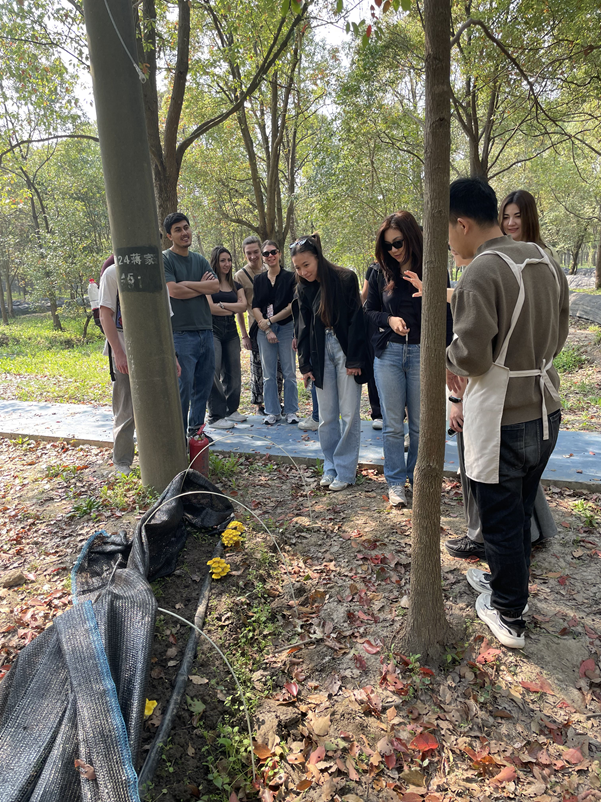


As they continued their journey, the students arrived at the "Rice Culture Experience Hall," nestled within the rice fields. Here, they explored exhibits on the history of rice farming and the unique agricultural culture of China. They also had the opportunity to watch a demonstration of the making of "Yexie Soft Cake," an intangible cultural heritage that has been passed down for over 400 years. The staff invited the students to sample this traditional handmade treat, and the delicate flavor of the rice-based cake left a lasting impression on the international visitors.


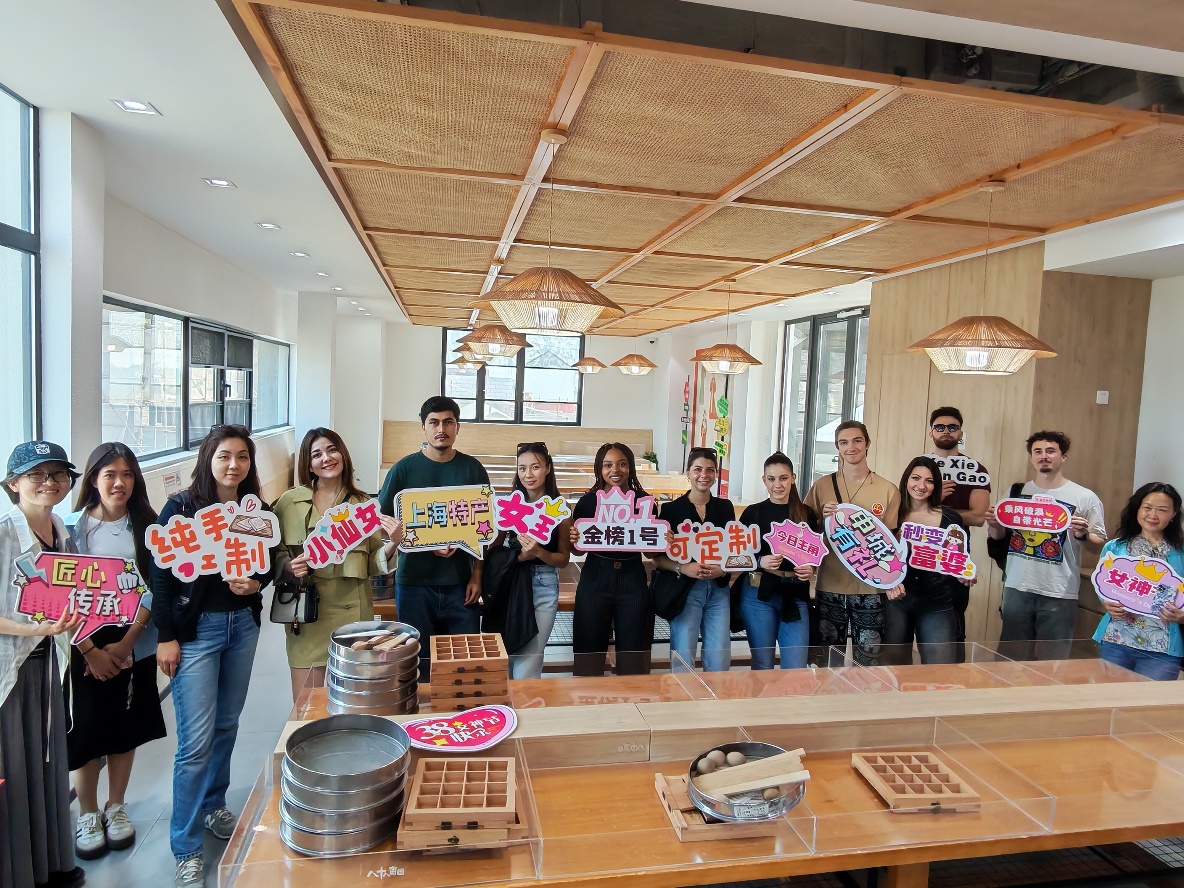
The group then gathered in a multifunctional conference hall, where Professors Zhong Xiaohua and Liu Yumei facilitated a discussion. Students from different countries and cultural backgrounds exchanged their observations and insights on what they had experienced. Over tea and friendly conversation, cultural differences sparked lively discussions and the sharing of diverse perspectives.

As the event drew to a close, Tajik student Yungjun proposed that the group sing songs from their home countries in their native languages, creating a beautiful moment of cross-cultural connection.Marika, Laura, and Mattia from Italy performed "Bella Ciao," a famous anti-fascist song that became well-known in China after being featured in the Yugoslav film The Bridge.The familiar and emotional melody, sung by the three Italian students, resonated deeply, evoking memories of the brave Italian internationalist fighters who had fought in Serbia during the war.. Professor Liu Yumei shared that the song has a Chinese version called "Ah, Friends, Goodbye," linking the cultural memories of three countries under the themes of war and peace.
Aruzhan, a student from Kazakhstan, sang the famous poem "Your Black Eyes"(Көзімнің қарасы)by Kazakh poet Abai Kunanbayev in her native tongue. Though the language was unfamiliar, the lyrical and heartfelt delivery moved everyone, enveloping them in its poetic beauty.
Then, Romeo, Ferdinand, and Noemie from France passionately sang "La Marseillaise," their national anthem. Their deep love and pride for their homeland rang out in the powerful, stirring notes, leaving a palpable sense of patriotism in the air.
Finally, Aijinhua from Cambodia brought the joyful spirit of Southeast Asia to the group with a lively performance of the popular Cambodian song "Gathering Together" (អារ៉ាប់ពីយ៉ា), spreading cheer and energy through its upbeat melody.
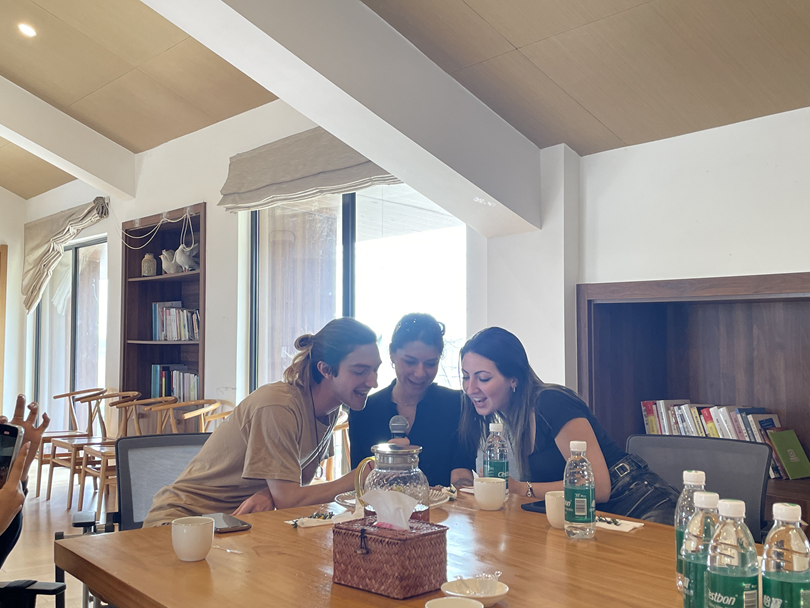
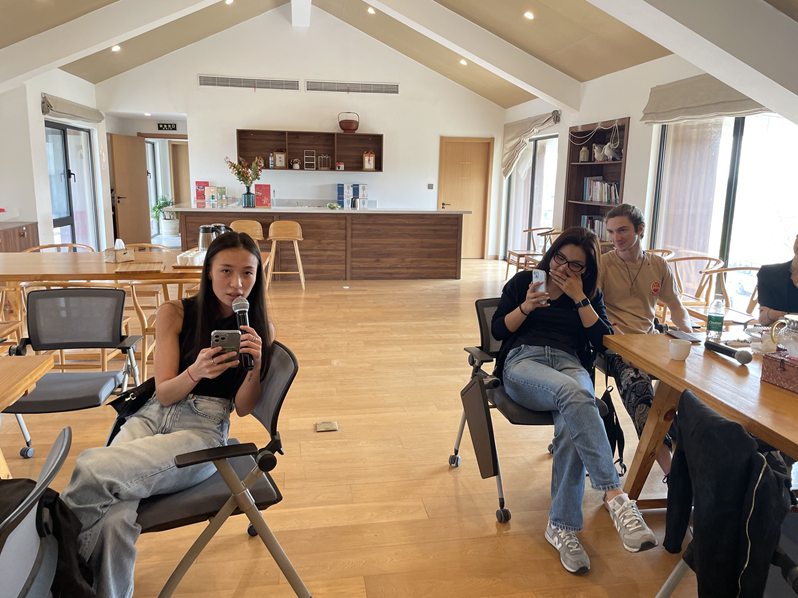

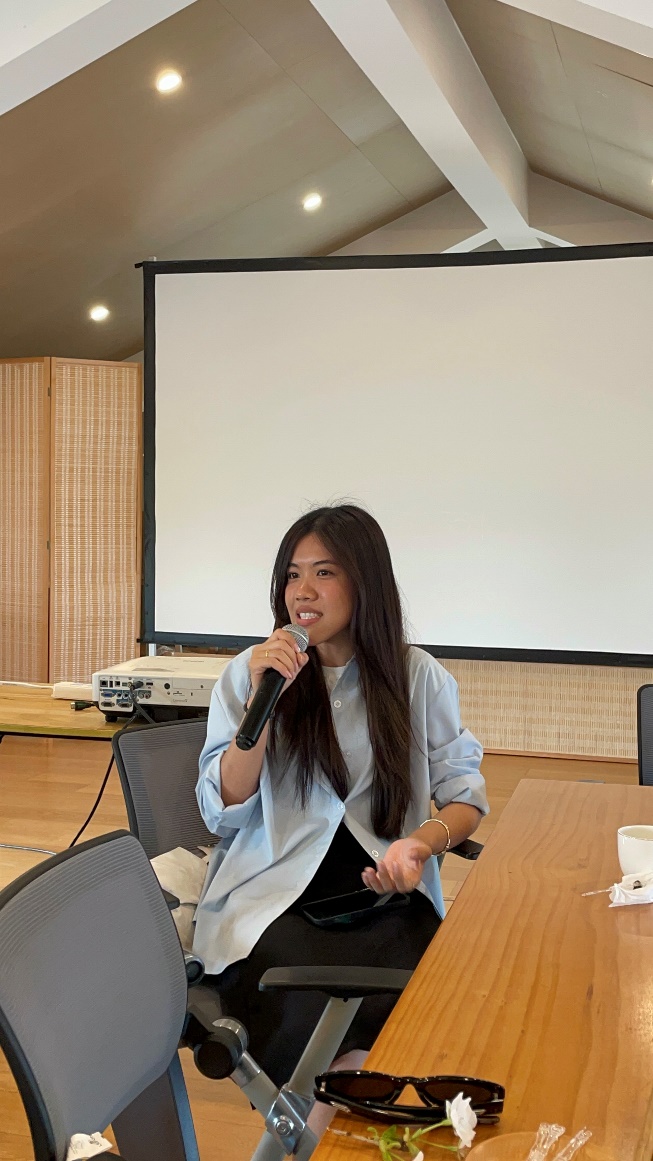
The event ended on a high note, leaving everyone uplifted by the music and the shared cultural exchange. On the return journey from Yexie Town, students reflected on the meaningful experience they had shared.
For international students, the classroom is just one part of their study experience in China. As the old Chinese saying goes, "Read ten thousand books, travel ten thousand miles." Stepping beyond the classroom to listen to the stories of China’s land adds depth and richness to their experience—perhaps even writing a more colorful chapter in their time studying in China.

Written by: Liu Yumei
Photography by: Liu Yumei and Zhong Xiaohua






